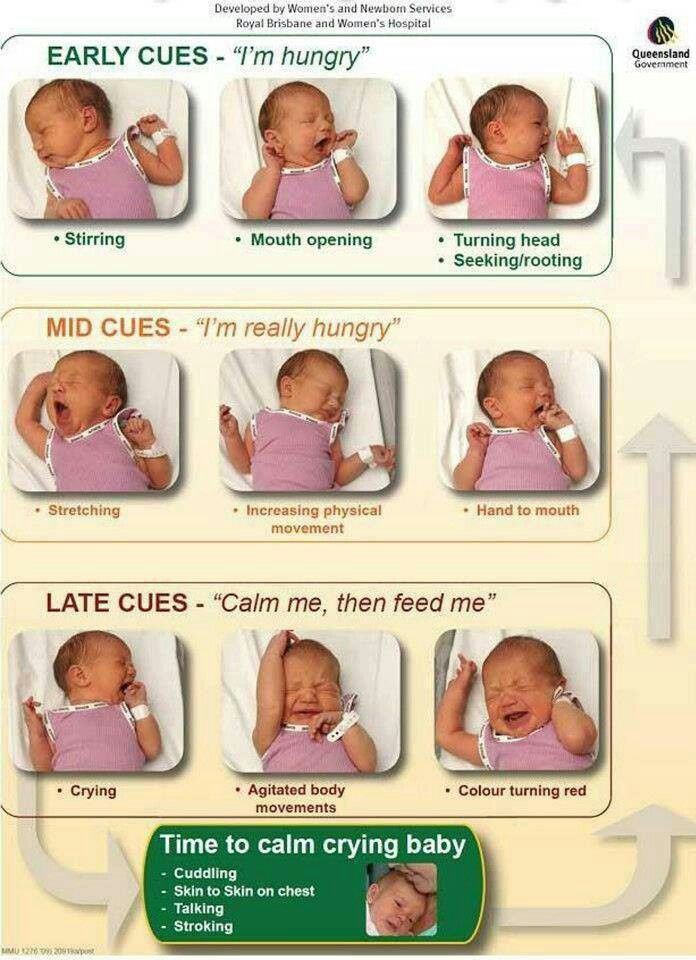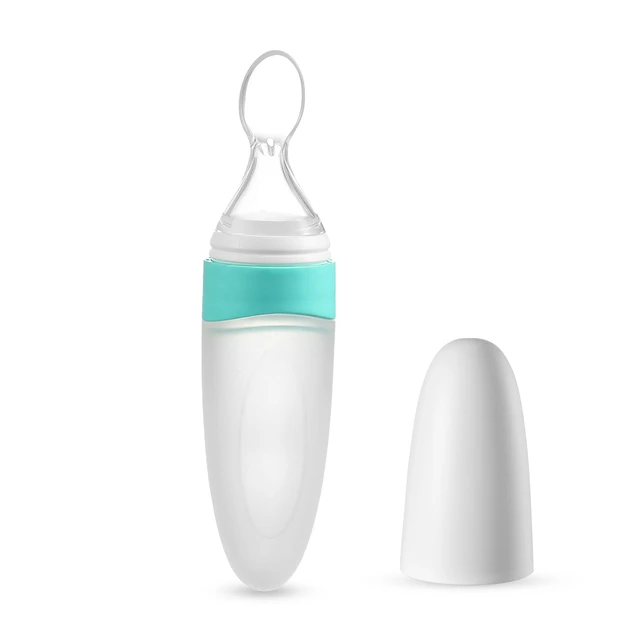How to keep baby awake for feeding
Keeping Your Baby Awake During Breastfeeding
Gently preventing your baby from nodding off while feeding will help to foster better feeding and sleeping habits.
new born babyMany babies have a cute tendency to nod off when they are feeding. Warm and cosy on the breast or cuddling in with a bottle, they drop off mid-feed and don’t want to be woken for another hour.While super-cute, this isn’t ideal. Keeping your baby awake at feeding time is important to avoid a feed-to-sleep association. That is, your baby gets into the habit of needing a feed in order to fall asleep. So how do you keep her from nodding off while feeding?
Understand sleeping patterns
Babies need a lot of sleep. Homeostatic pressure is the build-up of ‘need for sleep’ over time. In newborns, this pressure builds quickly; as babies grow and develop, it gradually lessens. Newborns can generally only tolerate around 45 to 90 minutes of wakefulness before needing to sleep. Toddlers can go for much longer – with stretches of up to five hours of being awake before needing to sleep again. Also bear in mind that a newborn’s circadian rhythm or ‘body clock’ does not properly develop until about six months of age. This clock is a 24-hour cycle that tells our bodies when to sleep, and also signals hunger and digestion.
How to keep your baby awake
Keeping your baby awake while feeding will help to foster good feeding and sleeping habits.
Observe your baby and keep track of her natural biological patterns of sleep and hunger. Once you know the patterns, then feed her at the times she is most awake – either right after waking up or well before she is ready for sleep again.
Also create an environment for eating, not sleeping. Here are some tips:
- Feed her in a lighted room – darkness sends a signal to their body that it’s time to sleep.
- Keep things cool – unwrap the swaddle or take her out of her sleep sack or pajamas before feeding. Your baby may associate warmth and wrapping with sleep time, so exposing her chest and feet to the air will send her an ‘awake’ message.

- Don’t be afraid to move – move your baby around and burp her to keep her alert. If she seems drowsy, remove the bottle or gently unlatch her and change positions to rouse her. You can also gently blow air on her cheeks or forehead (avoid blowing air directly into her face), stroke her bare feet or change her nappy.
- Make some noise – while a feeding environment should be calm and not too stimulating, playing music or singing and speaking with your baby while she feeds is a nice way to bond while keeping her engaged and awake.
Want to know more? Call us on 1800 842 098 or Live Chat now.
Related articles
Breastfeeding challenges: dealing with low milk supply
Read more
Top 5 tips for returning to work
Read more
Allergies: what to know when pregnant and breastfeeding
Read more
27 Ways To Keep Baby Awake While Breastfeeding — Milkology®
Newborns (especially in the first couple of weeks) tend to be EXTRA sleepy.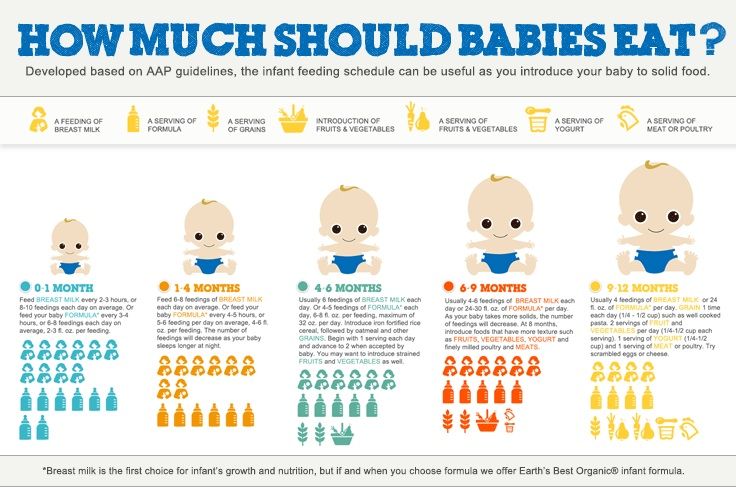
This can pose a problem with breastfeeding because they might not wake enough to take full feedings. Keeping them awake while breastfeeding is key to getting them to eat enough.
It’s no surprise that they can easily fall into a deep sleep while breastfeeding...
According to a study, there’s a hormone released while breastfeeding called cholecystokinin (or CCK) that naturally makes them feel full and drowsy. And the younger the infant is, the higher the concentrations of CCK is released in their body.
Knowing this - you'll need tips and tricks up your sleeve to keep your baby awake long enough during breastfeeding.
(Try 1 or 2 each feeding session to see what works best to rouse your baby)
Light up the room.
Take off their clothes and socks.
Change up breastfeeding positions.
Burp the baby.
Blow air on their cheeks or forehead.

Change their diaper.
Play music.
Sing to them or play with your baby.
Stroke the palms of their hands and soles of their feet.
Feed them during their light REM sleep cycle (when their eyelids flutter, they grin in their sleep, and have clenched fists)
Get skin to skin with your baby.
Massage the crown of your baby’s head while their feeding.
Wet a washcloth with lukewarm water and rub it on their face or along their hairline.
Do breast massages while feeding to encourage them to feed longer.
Run your fingers gently along their cheek or foot.
Switch breasts as soon as you notice baby stops actively suckling and begins to trail off.
Breastfeed in the “football” hold.
If your nipples are sore, these are an absolute lifesaver.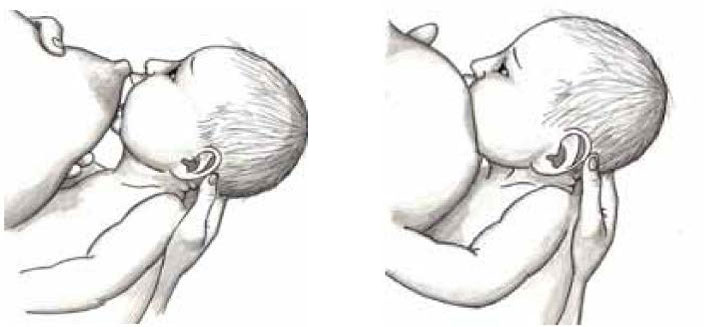 They’re super cheap, can be worn for multiple days (perfect when you’re trying to get a good latch), and are soooo soothing.
They’re super cheap, can be worn for multiple days (perfect when you’re trying to get a good latch), and are soooo soothing.
Lay them down on a flat, firm surface.
Bathe them.
Stroke your baby’s cheek if they’re latched but not actively nursing.
Move their arms and legs in a bicycling motion.
Talk to your baby!
Walk your fingers up baby’s spine.
Tickle their lower lip to encourage them to latch.
Feed your baby as soon as they wake.
Unwrap the baby from their blanket.
After trying a few tips, express milk for your baby if they’re still not responding. You can use hand expression or your pump.
Also, be sure to closely monitor their pee and poop output and weight gain to make sure they’re consistently getting enough to eat.
In the early weeks, newborn sleep is largely dictated by hunger so sleep duration varies a lot.
Until baby is back to birth weight (ideally by 14 days), try to gently wake baby every 3 hours for a feeding if they’re still sleeping.
🤱 1. If your nipples are sore, these are an absolute lifesaver. They’re super cheap, can be worn for multiple days (perfect when you’re trying to get a good latch), and are soooo soothing.
💪 2. Boost supply and tone up postpartum. Milk Dust is protein powder made just for breastfeeding moms. It nourishes and tones postpartum bodies (and contains milk boosting ingredients too!) Get 10% off Milk Dust using the code MILKOLOGY at checkout
💦 3. Ditch nursing pads for something better. The Elvie Catch protects your nipples and also catches milk from your letdowns. It helps you build your freezer stash without even trying! Save 15% on the Elvie Catch using the code MILKOLOGY
Breastfeeding, Common ConcernsStacey Stewart
How to wake up a baby for feeding and whether it is necessary to wake up a baby in the afternoon
05/29/2020
95
For any parent, the question of whether to wake up the baby is not easy. On the one hand, there are fears that a child who has been sleeping for a long time will not be able to fall asleep later, and on the other hand, how to raise such an angel who has been put to bed for so long...
On the one hand, there are fears that a child who has been sleeping for a long time will not be able to fall asleep later, and on the other hand, how to raise such an angel who has been put to bed for so long...
so that his sleep is not affected.
Let's start with the smallest children. You've probably heard the phrase "never wake a sleeping baby." But it is not always fair. Some newborn babies wake up on their own for feedings, while others need to be awakened. Whether or not you need to wake your baby depends on their age, weight, and overall health. nine0003
The American Academy of Pediatrics recommends waking your baby for feedings if he sleeps more than 4 hours in the first two weeks of life. On average, a baby needs feeding every 2-3 hours.
Frequent feeding is very important for several reasons:
- The baby's stomach is very small, the baby quickly digests breast milk. Faster than a mix. Therefore, physiologically, the child necessarily needs frequent feedings every 2-3 hours.

- Babies can sometimes sleep even when hungry, thus malnourished, which affects their development. nine0018
- After birth, the baby loses 5-10% of its body weight. And in the first weeks he needs to gain weight. Lack of milk or formula slows down this process.
- A short interval between feedings helps to maintain lactation. That allows you to avoid problems with a lack of milk in the future.
Tears already signal strong hunger. Therefore, it is better to breastfeed the baby before the baby starts crying. Learn to recognize the early signs of hunger: the baby puts his hand in his mouth, smacks his lips, tossing and turning when he sleeps. nine0003
Should the baby be woken up to feed during the day? In general, if an infant sleeps for more than 3 hours in one dream during daylight hours, he must be awakened. Then the mother can feed the already awakened baby. This makes it possible to adjust the work of the biological rhythms of the baby.
How to Wake Up
- Help your child gradually fall asleep by stroking their arms, legs or lightly tickling them.
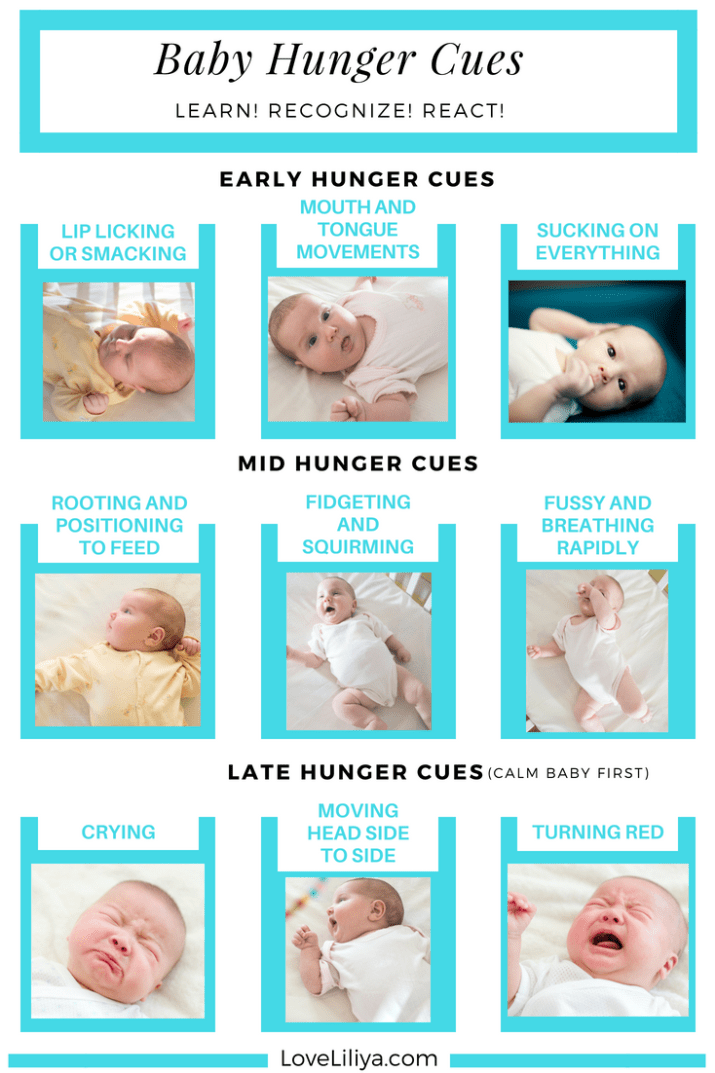
- Change diaper. Often this is enough for the baby to wake up and be ready to eat. nine0018
- Undress and place skin to skin on your chest. You can squeeze a few drops of milk onto your baby's mouth. He will smell and taste it and begin to suck on the breast.
- Speak - he will hear your voice and wake up.
- Do not turn on bright lights. A dim light is sufficient. The bright light will blind your eyes.
- If the baby has attached to the breast but has not begun to suckle, stroke his cheek.
How long to feed
As soon as the baby wakes up and starts to eat, make sure that the feeding is long enough to empty at least one breast. So we will know that he ate hind milk, which is necessary for the growth of the child's body. Some babies take 45 minutes or more to feed one breast, and some do it in 10 minutes.
The sucking reflex promotes falling asleep. Therefore, make sure that the baby does not fall asleep while feeding. If he falls asleep, change position, lift him up to burp, and then start feeding again. nine0003
If he falls asleep, change position, lift him up to burp, and then start feeding again. nine0003
By 6 months you will have a more or less predictable eating schedule. But each baby will have his own. Some of the children eat every 2 hours, and someone is able to stay without food for 3-4 hours by the second month of life. This is especially true for children who are formula fed.
The length of time between feedings increases as the child grows older. By the age of six months, many babies can already go without supplements at night or are able to sleep for longer periods.
nine0002 If a child wakes up too often after 6 months and asks for food at night, perhaps this is no longer hunger, but a way to relax and fall asleep.
Avoid using a pacifier in the first weeks after delivery. The pacifier helps the child to calm down and prolong sleep. So you may not notice that your baby is hungry. Therefore, start using a pacifier no earlier than 4-6 weeks and when you are lactating.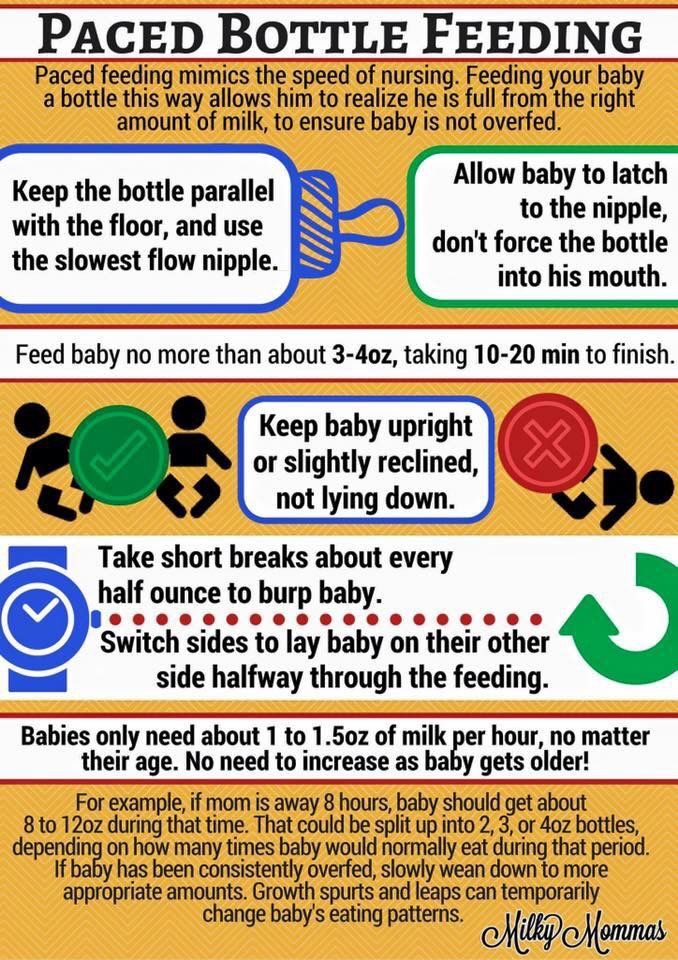
Should the baby be woken up to feed formula? As with breastfeeding, the newborn needs frequent formula feeding. But the interval will be more than 3-4 hours. nine0003
When it is necessary to wake up the child
It is important to wake up the baby in the morning if he has fallen asleep later than 7.00. This is especially true for children who still sleep 1-2-3 times during the day and have already developed a relatively stable routine. So you create the perfect routine in the morning.
After waking up, children need time to work up their fatigue for their next nap, the ideal window for which is around 9 and 1 pm (depending on age).
Therefore, if the baby slept until 8 am, he simply will not be able to fall asleep in his first daytime sleep. nine0003
In order for the baby to wake up calmly without tears, you can enter a wake-up ritual. It allows the child to smoothly transition from a sleepy state to wakefulness.
Example of a wake-up ritual:
- Open curtains/turn on lights
- Welcome words and a kiss
- Snacks, nursery rhymes after sleep
- Happy song
Then you can get up and start breakfast. For older children, such a ritual is also necessary. nine0003
For older children, such a ritual is also necessary. nine0003
The awakening ritual has different purposes:
- Marks the end of sleep,
- Teaches a child that everyday sounds are not a reason to wake up,
- Helps prevent baby from crying when waking up.
It will also be useful to have a light alarm. If the baby wakes up early, he will stay in bed until he sees the light on the clock.
When to wake your baby up after a nap
Many babies from 4 to 8 months sleep three times a day. nine0003
In this mode, it is important to wake up the baby after the third nap no later than 17.00. The duration of this segment is about 45 minutes, but not more than an hour. Then you can easily put the baby to bed by 19 o'clock.
Transition to one nap
At the age of 15-18 months there is a transition to one nap. It can be long and take place in different ways.
For example:
In the morning, the baby falls asleep easily and sleeps up to 2 hours.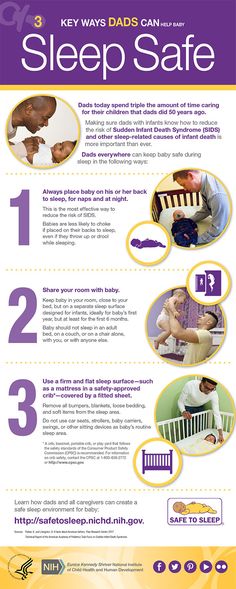 But then it is difficult to put it in lunch. And by the evening without rest at lunchtime, he is already overworked and falls asleep with difficulty. nine0003
But then it is difficult to put it in lunch. And by the evening without rest at lunchtime, he is already overworked and falls asleep with difficulty. nine0003
So if this is your case, you can pick up the baby after 60-75 minutes. At the same time, move the start of the second sleep 15 minutes later. But if the baby sleeps for 1 hour in the morning and then it’s already difficult to fall asleep a second time, start putting him down only at lunchtime.
One nap after 2 years
Between 2.5-5 years, naps may disappear. Here again, the story described above is often repeated. It seems that the child falls asleep perfectly during the day, sleeps for a long time, but in the evening, laying down is delayed until 10-11 pm. The problem is that getting up early in the morning to the garden usually does not allow you to sleep the necessary 10-11 hours per night. And again, you will have to gradually limit the duration of daytime rest. Wake your baby up after 60 minutes first, then skip the daytime so your baby sleeps better at night.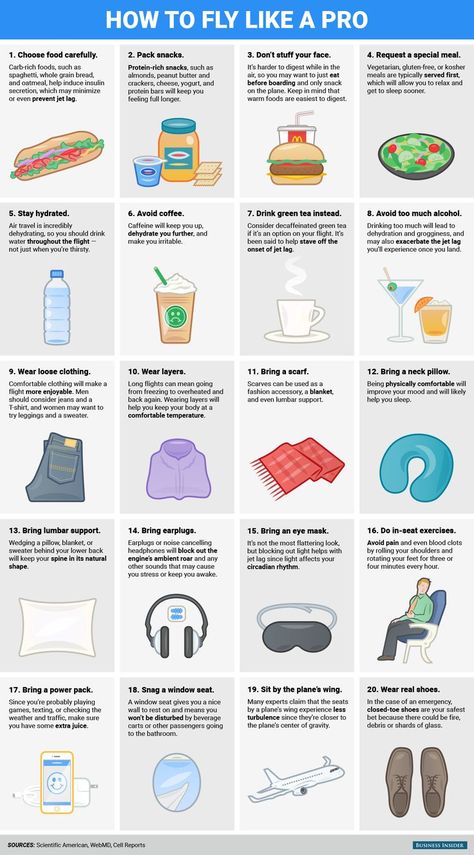 nine0003
nine0003
Keep an eye on your baby while doing this. If he is calm in the evening and falls asleep easily, and wakes up later than 6 o'clock in the morning in a good mood, then you are doing everything correctly.
If you notice excessive moodiness in the late afternoon or regular awakenings too early, then it is worth giving the baby more time to rest at lunchtime.
Like this article? Rate:
Votes: 92
How to wake up a newborn to feed. How to wake up a baby to feed him
Most mothers of newborns ask themselves the question: how to wake up a baby for feeding if he is fast asleep? Most often, newborn babies wake up on their own when it's time for feeding. But there are exceptions: the child sleeps very soundly, for more than three hours in a row, and, no matter how hard the mother tries, does not want to wake up. This happens if the mother had a difficult birth and if she uses any medications that lead to side effects.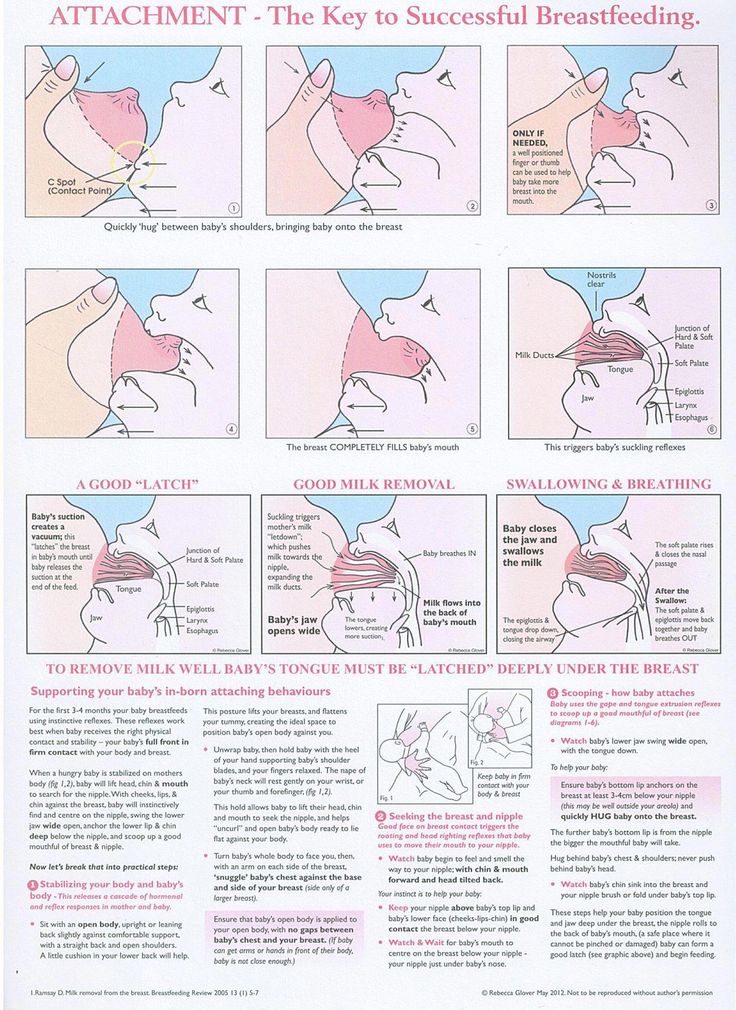 It is also quite difficult to wake up premature and weak babies. nine0003
It is also quite difficult to wake up premature and weak babies. nine0003
As a rule, in the first 2-3 months of life, a newborn needs to be fed on demand, and then there is no need to disturb the baby's sleep for eating. This approach will help increase milk production, lactation will improve in a nursing mother. But starting from the 3-4th month, you need to start accustoming to a certain daily routine, in which the feeding schedule is not the last. Pediatricians today recommend feeding babies every 3-4 hours. And sometimes you have to break the baby's sweet sleep so that he eats on time. So, kids from the age of four months should receive food every 4-5 hours. But to wake up a baby in order to feed him, you should be very careful, listening to the recommendations of pediatricians. nine0003
Is it necessary to wake the baby?
Of course, every mother feels sorry for waking up her baby, but breastfeeding has its own nuances, and it is undesirable to break the feeding schedule, because it is fraught with consequences for both the baby and the mother. For example, with a reduction in the number of feedings per day, the mother's milk production may significantly decrease. Lactation will be disrupted and eventually the baby will not have enough milk. And in a nursing baby, a long break between feedings can provoke dehydration. nine0003
For example, with a reduction in the number of feedings per day, the mother's milk production may significantly decrease. Lactation will be disrupted and eventually the baby will not have enough milk. And in a nursing baby, a long break between feedings can provoke dehydration. nine0003
Looking at her sweetly sleeping baby, a mother may wonder: is it necessary to wake up a newborn for feeding or is it better to feed him when he wakes up? You definitely need to wake up! After all, babies need to receive good nutrition, and a violation of the daily routine and feeding schedule will not lead to anything good. In addition, a hungry child will soon wake up anyway, crying and whining, demanding to be fed. But the bottom line is that the baby begins to eat, that is, suckle the breast. And for this it is not at all necessary to wake him up completely, especially when it comes to night feeding. It is important that the baby opens his eyes, sees his mother, takes the breast and begins to suck.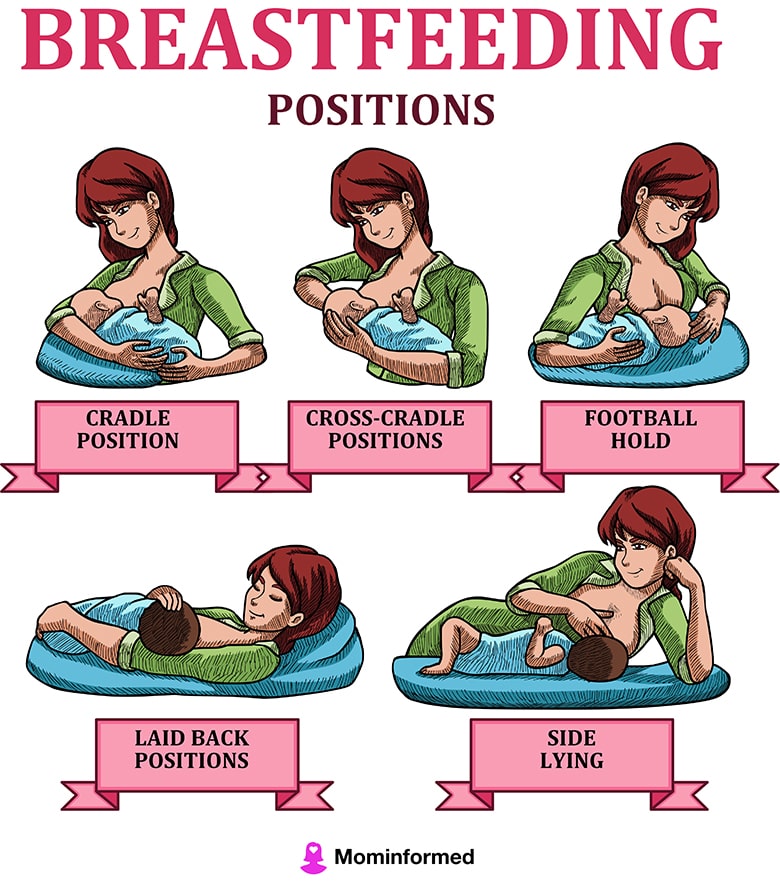 And then, in the process of feeding, the baby will fall asleep again, and very soon. nine0003
And then, in the process of feeding, the baby will fall asleep again, and very soon. nine0003
Babies who sleep through the night next to their mother hardly ever wake up at night during feeding. The baby simply gropes for the chest, and, having received what he wants, continues to sleep further, eating during sleep. And there is nothing wrong with that. In this case, the main thing is that the mother herself is awake, since a baby suckling her breast during sleep can choke and choke on milk. Night feeding is harder for women than daytime because of fatigue and the desire to sleep. But it must be understood that a mother who falls asleep during feeding can crush the newborn with her breast, which will lead to injury to the child, or, even worse, to suffocation. Therefore, if the mother is very tired and does not get enough sleep, it is necessary to involve the rest of the family in night feedings so that both mother and baby are supervised. nine0003
If the mother practices separate sleep, and the newborn sleeps in a separate bed or in a stroller, then she will have to get up to the baby several times a night, wake him up to feed, and then rock him again so that the baby falls asleep quickly. In general, a newborn baby can ask for a breast 3-4 times a night - this is considered the norm. And with separate sleep, the mother's rest is unlikely to be complete. However, to practice joint or separate sleep is up to the parents. But as for the baby’s sleep, next to his mother he will sleep calmer and longer. Although there are times when babies get used to sleeping without a mother, and then it can be difficult to wake them up to feed them. With special responsibility, you need to plan a meal schedule for premature and weakened babies - for them, shifts in the regimen are unacceptable, since children need to gain the missing weight. nine0003
In general, a newborn baby can ask for a breast 3-4 times a night - this is considered the norm. And with separate sleep, the mother's rest is unlikely to be complete. However, to practice joint or separate sleep is up to the parents. But as for the baby’s sleep, next to his mother he will sleep calmer and longer. Although there are times when babies get used to sleeping without a mother, and then it can be difficult to wake them up to feed them. With special responsibility, you need to plan a meal schedule for premature and weakened babies - for them, shifts in the regimen are unacceptable, since children need to gain the missing weight. nine0003
Simple ways
First of all, the mother of a newborn baby should understand that a child, like an adult, has sleep phases. And before waking up the baby for feeding, you need to make sure that he is in the active phase of sleep and the baby’s sleep is superficial: in this case, the child can move his eyelids and lips, smile, move his arms and legs. If you interrupt the sleep of a newborn during this period, then the baby will react calmly, and it will be easier for him to finally wake up. nine0003
If you interrupt the sleep of a newborn during this period, then the baby will react calmly, and it will be easier for him to finally wake up. nine0003
To check what phase of sleep the baby is in, you can carefully lift the baby's hand up - if the baby reacted (moved his eyelids, moved), then he is in the active phase of sleep. If no reaction followed, then the baby is in a deep sleep phase, and it is better to try to wake him up a little later - in 15-20 minutes.
It is important that the process of awakening is not painful for the baby, otherwise during the wakefulness period he will have a bad mood, the baby will be capricious and cry for no apparent reason. nine0139 Each mother, having tried different methods, finds a way to wake up a newborn for feeding. So, you can wake up the baby by doing the following:
Hug the baby. Feeling the presence of the mother, most kids wake up on their own to suck on the boobs. However, there are also children who, having felt their mother's hugs, fall asleep even more soundly, as their sense of safety and security increases.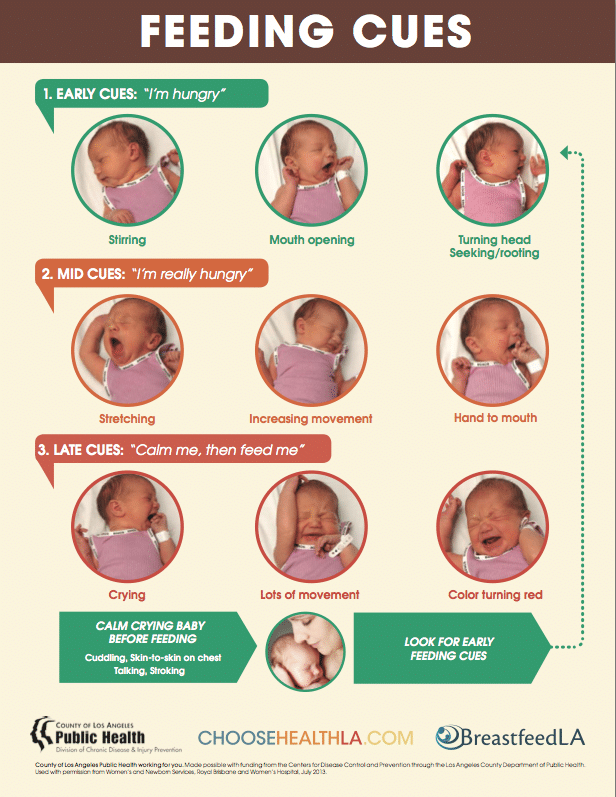
Open the child. A change of scenery (in this case, the absence of a warm blanket) always accompanies the awakening of the baby. nine0003
Change diaper or diaper. From these actions, the baby will wake up, but will not be scared, because these actions are familiar to him. You can completely change your baby's clothes - then he will definitely wake up!
Pick up the baby. Staying upright, which makes a sleeping baby uncomfortable, will force him to open his eyes. In order for the baby to wake up faster, you can walk around the room with him. An older child can be placed in your arms and gently stroked on the cheek, head, or back until waking up. Many mothers feed the baby, holding it in their arms, without waiting for it to fully awaken. And at night, this option is quite acceptable. nine0003
Get a massage. You can start with a massage of the hands or feet, very gentle movements. The result of the massage will be an increase in the blood circulation process and a rush of blood to the brain, which will provoke awakening and lead to the activity of the baby.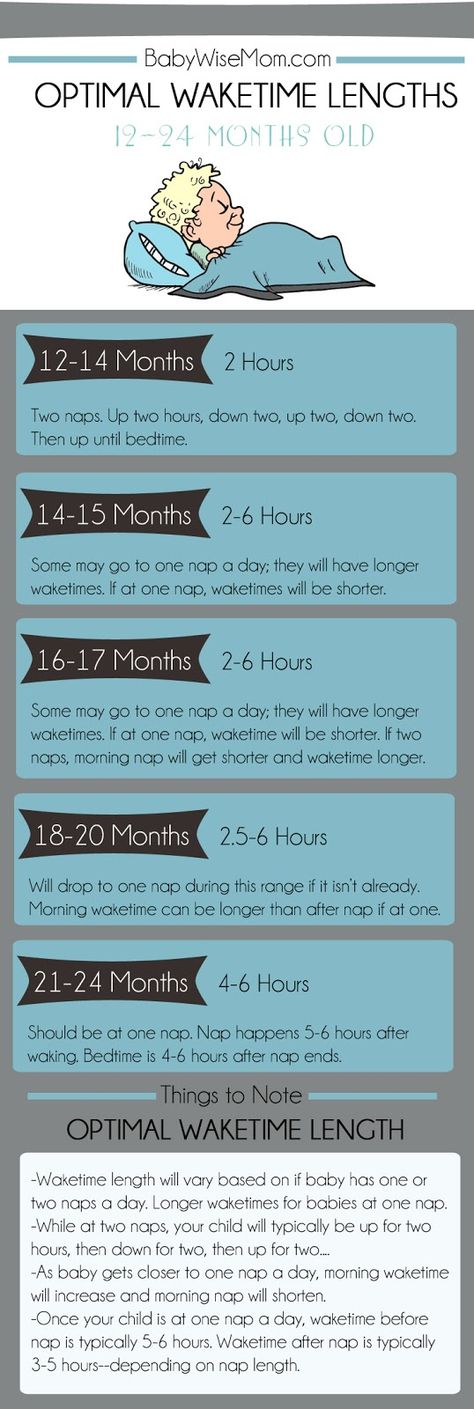 If the baby does not respond to the massage of the arms and legs, then you can do a little gymnastics with him, alternately bending and unbending the arms and legs. Usually these actions are enough for the baby to wake up.
If the baby does not respond to the massage of the arms and legs, then you can do a little gymnastics with him, alternately bending and unbending the arms and legs. Usually these actions are enough for the baby to wake up.
Lightly wipe the baby's face with a warm damp cloth. Gently washing with warm water will help the child wake up faster. nine0003
Start talking to the baby. First you need to speak in an undertone so as not to scare the baby. You can stroke the baby on the head and quietly sing a song to him, gradually making his voice louder.
It is important that when a child wakes up, he immediately sees his mother next to him. So he will feel safe, even though his sleep was interrupted. And the likelihood of fright or hysteria will be minimized. In the room where the baby sleeps, there must be a night lamp that will burn all night. The light from the lamp should not be bright, so as not to interfere with the sleep of the baby, but at the same time, so that when waking up, the baby can see everything that happens in the room. Yes, and the mother of a newborn with a night light is much more comfortable to sleep. In this case, the best option is a lamp with muted moonlight. nine0003
Yes, and the mother of a newborn with a night light is much more comfortable to sleep. In this case, the best option is a lamp with muted moonlight. nine0003
What actions should not be taken?
It is important to understand that some actions of parents in relation to a sleepy baby can frighten him very much, which can lead to deepest stress and serious problems with the child's psyche. Therefore, in no case should you:
- Wake up the baby abruptly.
- Wash the child with cold water.
- Try to wake up the baby with loud sounds. Loud music, voices, extraneous noise can lead to an irreparable effect. nine0018
- Turn on bright lights. A child from a sudden bright light can be very frightened. And from the bright light hitting the eyes, the baby is likely to close his eyes even more - this is a protective reaction of the eyes.
Every mother should understand that the feeding schedule, as well as the whole daily regimen, can periodically go astray.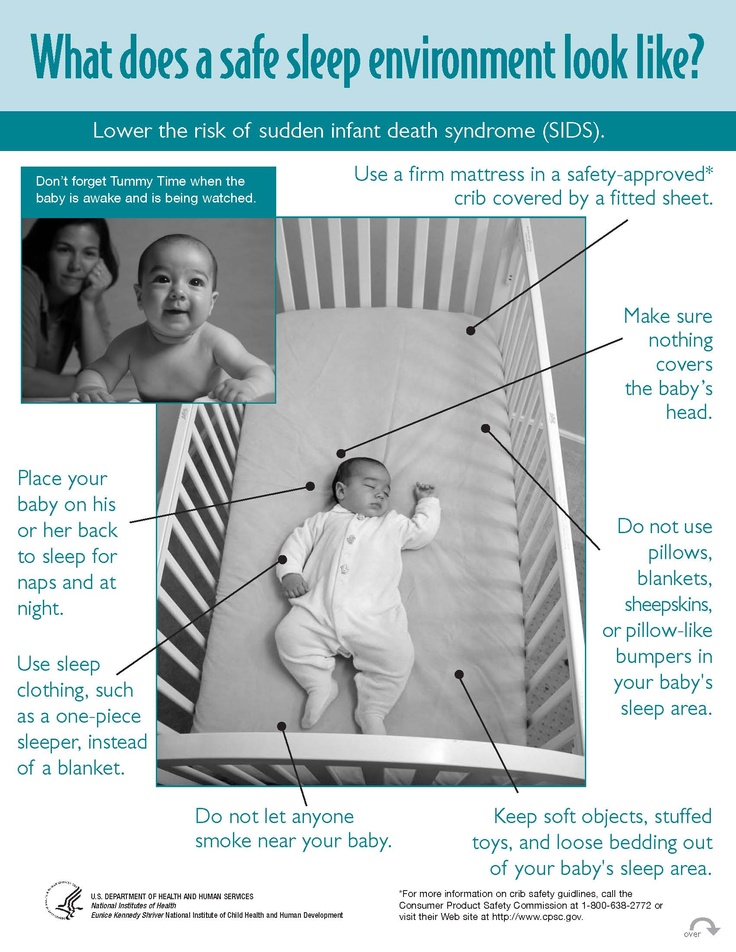 As they get older, the baby will begin to sleep less. It is permissible if the child eats 1 hour later or earlier than the due time. The shift in the daily routine can be affected by the illness of the baby, its overwork, and even a sharp change in weather conditions. Therefore, whether to interrupt the baby’s sleep or not, you need to decide depending on his well-being, age and type of feeding. It is also important to consider how the child gains weight. nine0003
As they get older, the baby will begin to sleep less. It is permissible if the child eats 1 hour later or earlier than the due time. The shift in the daily routine can be affected by the illness of the baby, its overwork, and even a sharp change in weather conditions. Therefore, whether to interrupt the baby’s sleep or not, you need to decide depending on his well-being, age and type of feeding. It is also important to consider how the child gains weight. nine0003
Having tried several different ways, each mother will surely find her own approach to the newborn, and soon it will not be difficult for her to wake up the baby for feeding. And when the baby gets used to a certain meal schedule, he will wake up on his own shortly before the planned meal.
Sleep and food are the two main needs of an infant in the first months of life. In between, you still need to empty your bowels and urinate. Based on this, children spend most of their time sleeping. Normally, the child independently reacts to hunger, wakes up and requires a breast, but sometimes you have to specifically wake the newborn for feeding. The most common problem of sleepy children in the first few weeks. Less often, the reluctance to suck stretches for months. nine0003
The most common problem of sleepy children in the first few weeks. Less often, the reluctance to suck stretches for months. nine0003
According to the WHO, it is physically impossible for a baby to sleep for more than 5 hours in a row without feeding. If the child sleeps all the time after childbirth, then there is a high probability of disturbances in the functioning of the nervous system.
A side effect often occurs after a caesarean section, the use of medications during childbirth or during pregnancy. In this case, children need to be woken up for feeding, as there is a risk of undernutrition and loss of strength.
If children are separated from their mother, they sleep a lot in the first days after birth. The instinctive natural mechanism of self-preservation works. The body freezes to conserve energy. But, once at home, in the arms of their mother, they behave restlessly and require a breast every 20-30 minutes. nine0003
How long does a baby sleep after giving birth? The total daily sleep duration is 16-20 hours in the first month. By three months, the indicators are reduced to 15-17 hours. Night sleep without awakening is rarely 5-6 hours.
By three months, the indicators are reduced to 15-17 hours. Night sleep without awakening is rarely 5-6 hours.
Should I wake my newborn to feed? There are no unequivocal recommendations on how to behave for a woman whose child sleeps for a long time. Two healthy babies may be awake and feed at different times. To make a decision, a number of factors must be taken into account. nine0003
A newborn should be awakened if:
- the interval between feedings is 3-4 hours and the baby is sleeping during this time;
- there is a real underweight, and not a far-fetched mother;
- urination less than 6-7 times per day;
- does not actively suckle, and after applying he falls asleep completely after a few minutes.
A woman needs to be attentive to the sleep of premature or small babies. They are constantly sleeping because of weakness. If you do not provide regular nutrition, then strength will be lost, and sleep will be prolonged longer.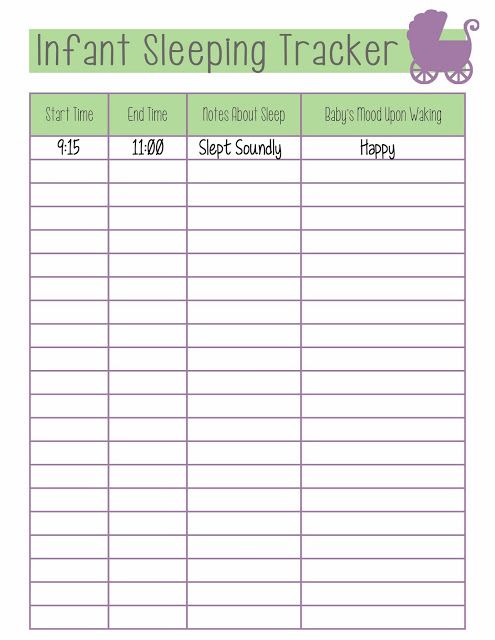 It turns out a vicious circle, which can be broken by the vigilance and efforts of the mother. In such a situation, be sure to wake the newborn for feeding at night 2-3 times and every 3 hours during the day. nine0003
It turns out a vicious circle, which can be broken by the vigilance and efforts of the mother. In such a situation, be sure to wake the newborn for feeding at night 2-3 times and every 3 hours during the day. nine0003
Children who are underweight and not gaining enough weight are one of the exceptions that Dr. Komarovsky allows in order to wake up a sleeping baby. A generally healthy child is able to figure out and let his mother know how much and when to eat.
Awakening methods
Most babies suckle well during sleep, this can be seen from the swallowing movements. Therefore, if you wake up a newborn during feeding, he will start to fuss and eventually spit out the nipple.
It happens that the child sleeps and does not eat. In this case, changing the breast or posture, stroking the head, talking helps. The actions of a woman are mainly aimed at maintaining suckling.
If the newborn sleeps for a long time, misses feedings, or is underweight, then more active methods should be used. It is important to find out the reason and if it is impossible to cope with one. It is worth consulting with a breastfeeding specialist.
It is important to find out the reason and if it is impossible to cope with one. It is worth consulting with a breastfeeding specialist.
How to properly wake up a newborn for feeding in the hospital:
- apply to the breast, run the nipple over the lips, express a few drops into the mouth;
- tickle the feet, stroke the legs;
- blow on the face, touch the cheeks, shake slightly;
- unwrap, undress, remove diaper;
- pat on the back, tummy;
- turn to him out loud, say that it's time to eat;
- pick up vertically;
- Gently turn over several times from side to side. nine0045
- Anesthesia of the mother during childbirth that affected the baby;
- Early term or difficult delivery, after which the baby is weakened. nine0018
- Feed the child and develop a routine; nine0018
- Adjust lactation.
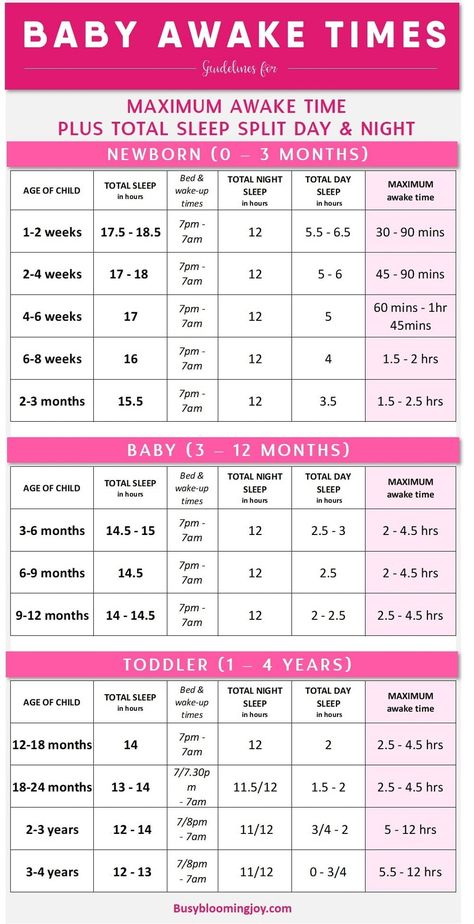
- When the baby cannot wake up on time on his own, mommy needs to take him on her arms, change his position (for example, put him vertically on his shoulder).
- You can also gently pat him on the cheek, arms, legs. The main thing is that you need to do this in dim lighting, so as not to shock the baby with harsh light.
- Then, when he opens his eyes, look at him and smile. Then he will not be afraid, and he will quickly get used to his mother. nine0018
- Wait until baby is in active sleep and wake up again. At this time, sleep is superficial and it will be easier to wake him up. It is easy to recognize this phase of sleep: the baby can change facial expressions, smile, smack, eyes under the eyelids move quickly.
- Then quickly give him a breast and walk around the room with him, change his position on your hands, change breasts (not earlier than 10 minutes after active sucking of the first breast).
- An underweight newborn should be awakened for attachment to the breast. Often these children do not have the strength to wake up. They can oversleep for six or more hours in a row, but this is rather an alarm signal. In such matters, it is better not to rely on subjective sensations, but to measure the weight gain of the child within a month on the scales. There are norms that can be found on the Internet or ask a pediatrician. Only after consulting with a specialist, you can wake up the baby for feeding. nine0018
- Women with hyperlactation, that is, too much milk production, do not need to take long breaks in application. This can provoke such troubles as lactostasis and mastitis. Only with the help of feeding at night and regular application will it be possible to gradually establish and make lactation comfortable.

- If there is a lump in the chest, it hurts, the temperature rises and fever appears - there are signs of lactostasis. The best way to deal with it is to feed your baby as often as possible. Any pumping - manually or with a breast pump - does not give such a result. Therefore, in this case, it is necessary to wake up. The baby dissolves the breast, and the malaise gradually disappears. nine0018
- If your milk supply is low and you want to start feeding, feeding at night is a must. It is in the dark that prolactin is produced. This is a special hormone responsible for lactation. There is even a nesting method in which a mother with a newborn child spends most of the day in bed. The more the baby sucks, the more likely it is to do without the mixture. It is possible and necessary to wake up the baby in this situation so that he takes the breast.
- Raise the child's arm in the air and release it. If the baby moved, began to make sucking movements - you can give him a breast in a half-asleep state.
- The next way is to gently massage the newborn's ear. The nerve endings that are present there will be activated, and the child will wake up.
- The most radical method, which should be used only in extreme cases, is to lightly pinch the baby's nose. The newborn will begin to worry, open his mouth, and then he can be given a breast. nine0018
- Prolonged sleep is a consequence of taking painkillers and drugs during childbirth.
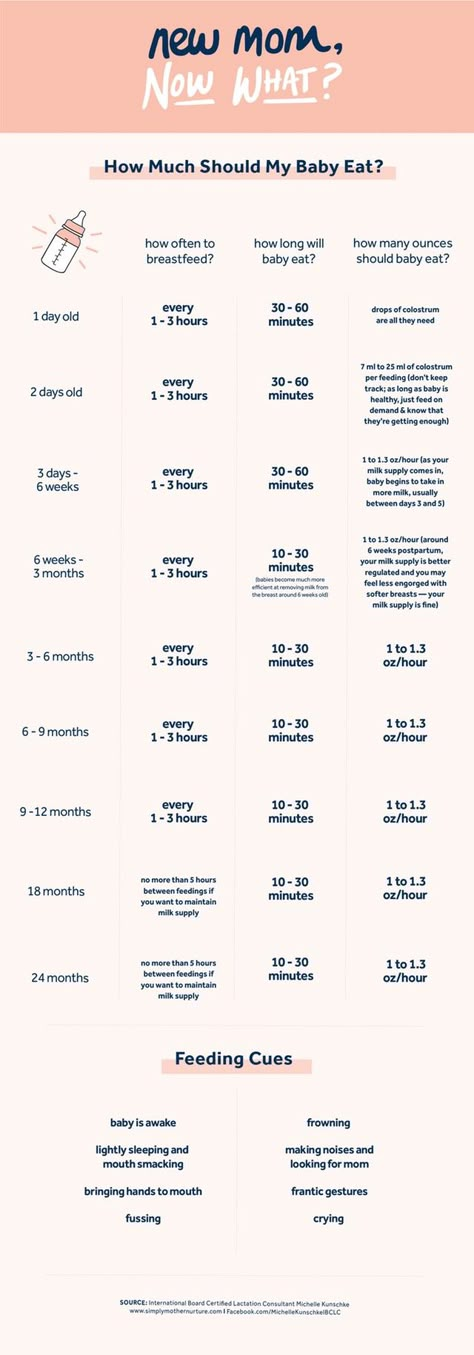 They tend to penetrate the body of the child. For this reason, it is difficult for him to get out of a sleepy state on his own.
They tend to penetrate the body of the child. For this reason, it is difficult for him to get out of a sleepy state on his own. - There are cases when it is necessary to place the mother separately from the baby after childbirth. In this case, his body tries to save energy and sleep as long as possible. In this situation, prolonged sleep indicates the launch of a self-preservation mechanism. nine0045
- Some babies sleep separately.
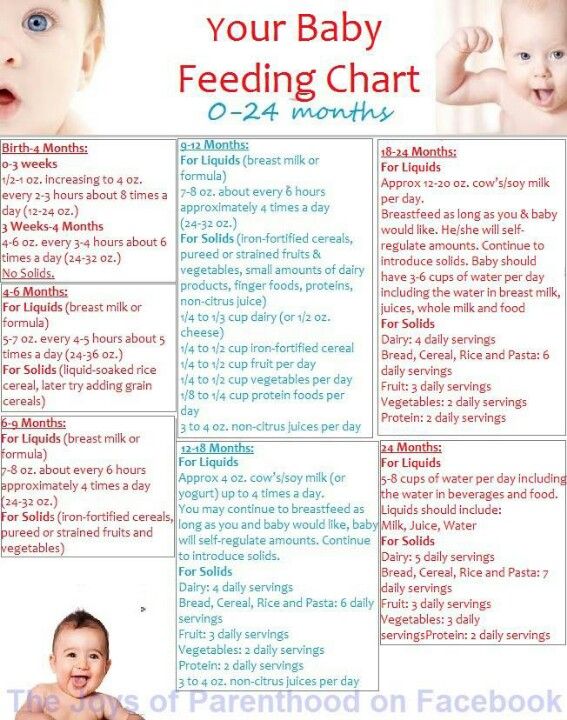 Parents tend to teach them not to wake up during the whole night. nine0018
Parents tend to teach them not to wake up during the whole night. nine0018 - Most often, it is difficult to wake up for children who were born prematurely. In this case, mommy must wake them up for feeding.
- The ideal time to wake up is the phase of active sleep. During this period, the baby begins to move the legs and arms. Sometimes the situation is also accompanied by an alternate movement of the lips and eyelids. Some parents notice that during this period their child may even smile. nine0018
- After determining the sleep phase, carefully pull off the blanket.
 Most often, this is quite enough for the baby to wake up. Otherwise, you should remove it from the crib and lift it up. It is important that he feels the light touch of the mother.
Most often, this is quite enough for the baby to wake up. Otherwise, you should remove it from the crib and lift it up. It is important that he feels the light touch of the mother. - It is allowed to start changing diapers. This process is already well known, so it will not scare you. Movements should be slow and smooth.
- Baby can be held vertically. In this case, you should hold your head well. In this case, he will have to slightly open his eyes. Awakening is facilitated by stroking on the back. They should be made until the moment when the baby is fully awake. nine0018
- Pleasant sensations in the baby will cause a massage of the arms and legs. Thanks to this, the process of blood circulation will noticeably improve. As a result, brain function will be improved. It will be much easier for the baby to move away from sleep.
- Psychologists believe that at the moment you can also sing a song or talk. Mom should attract attention to herself and try to make the child open her eyes.
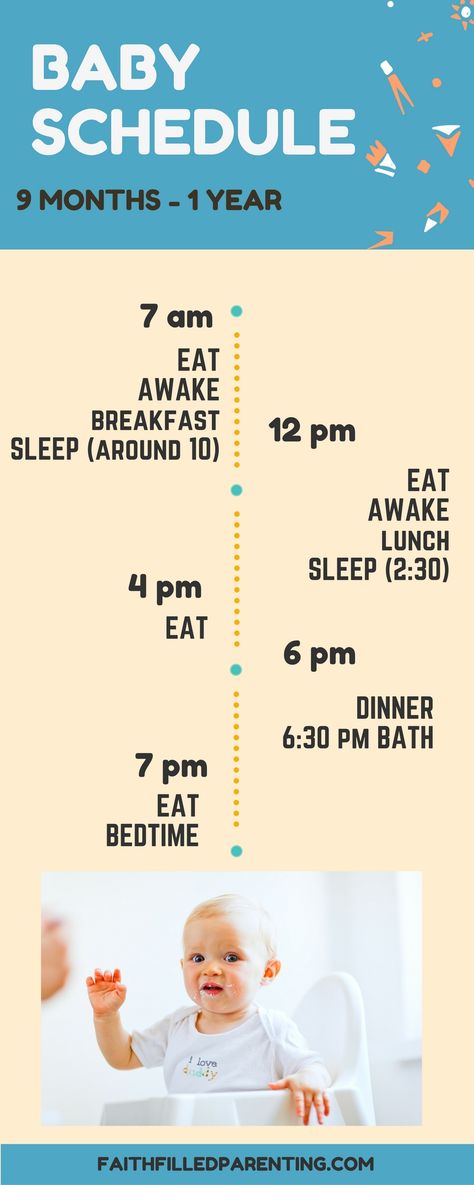 In this case, the baby will be disposed to further communication and interaction with the mother. nine0045
In this case, the baby will be disposed to further communication and interaction with the mother. nine0045
Effective skin-to-skin contact. The method works for awakening, development of the sucking reflex and the formation of lactation. Bright lighting causes the eyes to squint instinctively, and the high air temperature in the room dulls the sucking activity. To wake a sleeping newborn, you need to dim the light slightly and undress him.
If the methods do not work, it is allowed to wipe the face and eyes with a wet diaper. It will invigorate and refresh the newborn. Some babies wake up on hard surfaces or if they are away from their mother. You can put the baby on the changing table, most likely, he will wake up. nine0003
How soon to wake up a newborn for feeding? If three hours have passed since the last breastfeeding during the day, then this is a signal to stir up the sleepyhead. A longer period of time is given for feeding at night - 4-6 hours. For the whole night 2-3 times are enough, less often 1 time.
Feeding mode
Newborn sleepiness in the hospital due to aggravating circumstances is understandable and can be overcome. But often the child sleeps and does not eat at the right time because the wrong feeding regimen is selected. The most popular are two methods. nine0003
Hourly. For feeding during the day, there is a rule "every 3-4 hours for 15-20 minutes." At night, the break between applications is extended to 5-6 hours. It is convenient for a woman to plan her day, it is known in advance when the baby is hungry, she is more likely to get enough sleep at night.
It is convenient for a woman to plan her day, it is known in advance when the baby is hungry, she is more likely to get enough sleep at night.
But before the newborn gets used to the imposed attitudes, time passes and a lot of effort is expended. He is woken up for feeding despite no indication. They do not allow to get to the hind milk, which is more fat, as the allotted time has ended. The result is a constantly sleep-deprived baby with a lack of weight and a tired mother. nine0003
On request. It implies attachment at the first squeak of the child. There are no restrictions on sucking time. There is no specific mode. There can be up to 20 or more feedings per day. The method means the full readiness of the mother at any time of the day, and the place to offer the breast.
The method sometimes causes the baby to take a very light nap and wake up up to 6-7 times at night. Accustomed to sleeping on his chest, the newborn wakes himself up with his hands, as soon as he himself is in the crib.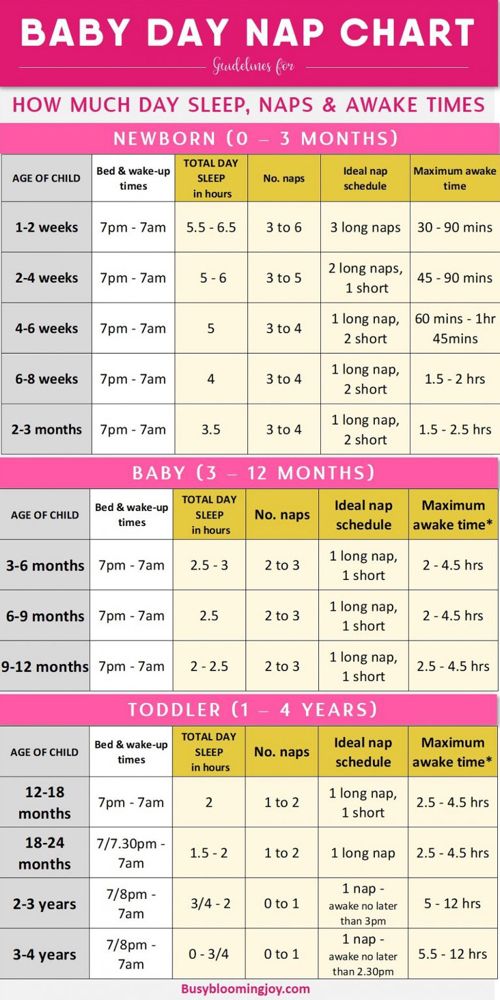 The solution is swaddling or co-sleeping. nine0003
The solution is swaddling or co-sleeping. nine0003
Both modes have pros and cons. The optimal, nevertheless, is considered to be the average feeding option, with a bias towards frequent application, including at night. This will avoid problems with lactostasis and mastitis, which often occur as a result of skipping feeding due to baby's sleep.
Should a newborn be woken up to feed at night? The greatest amount of prolactin is produced in the dark. In the morning, women's milk is especially saturated with nutrients. For full lactation and providing the child with vitamins, nightly applications are important, especially in the first 3-4 months after childbirth. Therefore, if the newborn does not wake up on his own to eat, the mother should wake him up at least 2 times. nine0003
Flexible hours
Free mode does not mean breastfeeding with every sob. It is important to learn to listen to your child. Scream means pain, discomfort, fear, cold. A flexible schedule means you can sleep longer than usual. No need to interrupt sleep to feed a newborn for no good reason.
No need to interrupt sleep to feed a newborn for no good reason.
Adapted formulas are harder to digest than breast milk. Therefore, artificial children sleep longer and eat less often. Their schedule is more like a clockwork schedule. The required number of feedings is determined based on weight, rate of weight gain, gender and, above all, the manufacturer's norms. nine0003
The main part of the meal is during the daytime. At night, it is advisable to give a bottle once after 1-2 months after childbirth. If the child wakes up more often, then you can offer to drink some water or tea. Especially to wake up a newborn for feeding at night with a mixture is in extreme cases, on the recommendation of a doctor.
The development of a routine implies adherence to the daily routine. Daily bathing, walking - everything adjusts to the time when the baby eats and sleeps. This is the definition of a flexible schedule, in contrast to the hours of feeding, sleep, and hygiene procedures pre-selected by the mother, regardless of natural needs.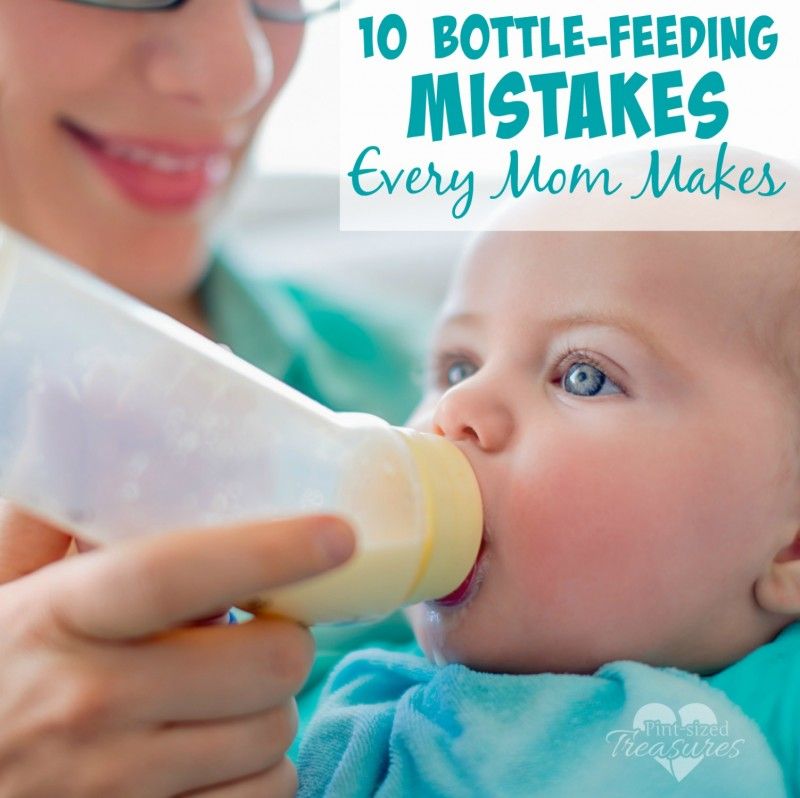 nine0003
nine0003
Should a newborn be woken up for bathing? If the child sleeps while taking a bath, then the disaster will not happen, the procedure is postponed to tomorrow. If the bathing time chosen by the mother coincides with the baby's desire to sleep regularly, then it is better to review the schedule of the day, but not interrupt sleep.
If the child grows normally, develops, gains weight, does not get sick, then there is no need to listen to advisers and wake up the newborn for up to a year. Good sleep plays an important role in physical, mental and emotional health. nine0003
Is it necessary to wake up a newborn if he crap one's pants? For changing diapers and toileting, whether the baby is asleep or not. Experienced mothers do it imperceptibly and quickly. But, if the baby pooped and stayed in dirty diapers for a while, then irritation may occur on the skin. It is easier to put the baby back to sleep than to treat diaper rash.
The main goal is to wake up the newborn not for wakefulness, but for feeding. The baby may be sleepy but suckle at the breast at the same time. It is important for mom not to go to extremes, to adequately assess the need to interrupt sleep. nine0003
The baby may be sleepy but suckle at the breast at the same time. It is important for mom not to go to extremes, to adequately assess the need to interrupt sleep. nine0003
Hello, dear readers of my blog! I want to tell you about the features of feeding newborns. It happens that the baby sleeps for a long time, and the mother does not know how to wake the newborn for feeding. We will talk about this and many other things today.
Feeding a baby scares many mothers even before birth. They are constantly presented with terrible pictures of sleepless nights, children's screams and cracking nipples. But, thank God, this is far from an inevitable reality. Often things are much easier. It's all about the positive mood of the mother and good helpers in the family. Therefore, we must prepare ourselves for the best in advance, even during pregnancy! nine0003
Mothers who give birth for the first time are always under great stress - what to do with a newborn?
This stress can negatively affect milk supply.
The success of all breastfeeding depends on how lactation improves in the early days.
So what do we need? We need relaxation. At least to the extent that it is generally possible in this situation. The main task of providing it falls on the shoulders of the husband and close relatives.
Mom needs to be provided with comfortable conditions so that she does not experience negative emotions and panic when she leaves the hospital. If everyone helps around the house and leaves the mother alone with the baby in peace, lactation will improve and breastfeeding will be easy. If you still have problems with this, then you will have to bottle feed.
In both cases, there is an infant feeding plan. I will not describe the pros and cons of each type of feeding, this will be the topic of our next meeting. I just want to say that a baby who is breastfed may require a mother more often than an artificial one. nine0003
And this is due to the fact that he constantly smells his mother's milk, no one else can feed him.
But dad can also feed a baby from a bottle. Let father and child get used to each other:
2. Should the baby be woken up for feeding?
Immediately after birth, the baby can sleep for a long time.
This can happen for the following reasons :
In the first case, this is a normal reaction of the child's body to medicines and will go away on its own, you just need to feed the child more often. In the second case, you need to control the medical staff over the condition of the baby.
Babies in their first months eat and sleep constantly, and it is better to feed them on demand. If a child sleeps for 3-4 hours in a row in the first days of life, is it necessary to wake him up for feeding?
Yes, you will have to wake me up. This is necessary in order to:
Now about the best way to wake him up.
Dear mothers, if you don't breastfeed as often as you can during the first few days, you won't improve lactation and risk losing milk. If you need to wake him up for this, wake him up.
After a week, lactation will adjust, the baby will enter his own regime and everything will be fine. You and your child set the number of feedings that he needs:
3. What to do with night feeding
All women in labor are afraid of sleepless nights. Are all mothers forced to stay up at night and constantly run to the child? nine0003
Are all mothers forced to stay up at night and constantly run to the child? nine0003
I will say that how often a mother feeds a baby at night depends on his age, type of feeding and lifestyle.
From birth to 5-6 months, the baby is fed 2-3 times a night.
Further, less. It is better to put a child who is breastfed to sleep with you. In this case, the baby constantly feels his mother and looks for her in a sleepy state, simply shaking his head and smacking his lips. Mommy can only give him a breast in her mouth and continue to sleep. nine0003
If your baby is formula-fed and sleeps in a crib, should you wake up yourself and go to wake him up at night?
It's better to get up and bottle feed him at least once a night if he doesn't ask for more. This will give him strength.
4. What to do if you wake up your baby to feed him and he goes back to sleep
It happens that you gently wake the baby by tickling him on the face or heels so that he can eat, and after sucking for five minutes, he falls asleep again. So you didn't wake him up completely. This is especially difficult at night. nine0003
So you didn't wake him up completely. This is especially difficult at night. nine0003
If you are bottle feeding, you can shake it slightly. Put the sleeping baby on your shoulder, then change your hand and give the breast again. nine0003
In any case, 20 minutes of productive suckling is enough for the baby to eat. As a rule, after that, he can simply smack his mouth with a nipple or breast without eating anything. It satisfies the sucking reflex. At this time, you need to stop feeding and put the baby to sleep in the crib:
Usually, the mother's idea of how to properly feed the baby changes by itself as she practices. So just give in to your intuition. Believe me, mom's natural instincts are the strongest. The kid also feels it, so he gradually tunes in to “her wave” and they react to each other in an unusual way. nine0003
So just give in to your intuition. Believe me, mom's natural instincts are the strongest. The kid also feels it, so he gradually tunes in to “her wave” and they react to each other in an unusual way. nine0003
And you can learn more about the rules of baby sleep from this video from Dr. Komarovsky:
Dear moms, I hope my advice has helped you and you will learn to better understand your baby! Subscribe to blog updates and share news on social networks. See you!
Newborn babies have their own laws. In order to gain weight and develop properly, a child needs a lot of calories and nutrients that he receives from breast milk or a special mixture in his absence. But an inexperienced mother is often afraid of making mistakes in her actions. Therefore, the question of the frequency of night feedings becomes more relevant than ever. nine0003
In general, any baby, if he is not sick, has well developed instincts necessary for survival. The newborn feels calm and develops well next to his mother, he is sure that he will receive warmth, food, and protection from her.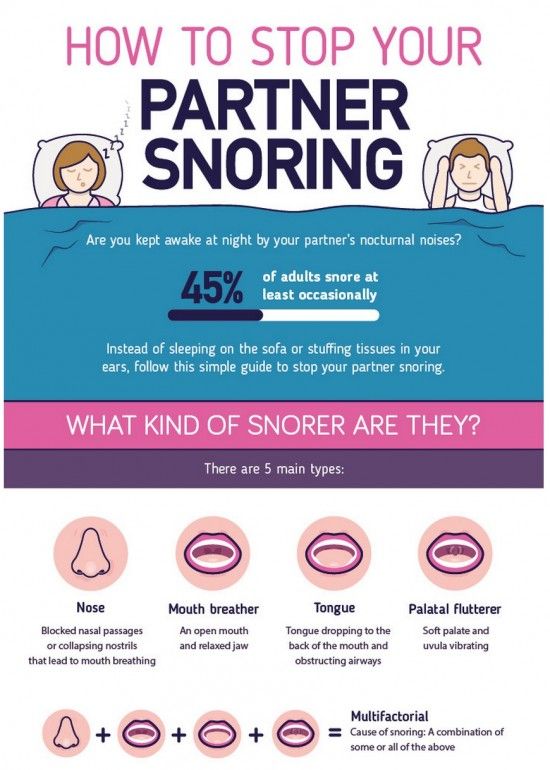 Therefore, it is natural to be close to mom at night. Feeling it, the baby will sleep peacefully, in a state of semi-consciousness, kissing the chest when he needs it.
Therefore, it is natural to be close to mom at night. Feeling it, the baby will sleep peacefully, in a state of semi-consciousness, kissing the chest when he needs it.
However, there are situations when it is worth waking up for night feeding. They are connected, first of all, with some emergency situations in the state of mother and child. nine0003
Mom's milk and formula: what's the difference?
Before talking about night feedings, you need to understand the principles of nutrition of the baby, laid down by nature.
Mother's milk is a natural food, fully adapted to the needs of the baby. Its composition and nutritional properties change during the growing up of the child, adjusting to his needs. It must be understood that this nutrient fluid in the mother’s breast does not accumulate, but is produced. This happens as a reaction to the sucking of the baby. If he receives milk, he lives in a special regime. Feeding in this case is not only food, but also peace, confidence in one's own safety. nine0003
nine0003
Unfortunately, during the Soviet years, the connection between generations was broken in many matters, including those related to motherhood. Women had to go to work almost immediately after giving birth, so the whole science of childcare came down to strict discipline and essentially curtailing breastfeeding. Therefore, modern women often hear from mothers and grandmothers that they are doing wrong, relying on natural instincts and inner intuition. This is not true, because it is in frequent application on demand that the success of a long and fruitful breastfeeding lies. Today, there are entire mommy support services that restore these time-broken ties. nine0003
The mixture, however good it may be, is still not typical food for mammals. Of course, artificial babies are no worse than those who suck their mother's milk, but their diet and sleep patterns are significantly different. Since the mixture cannot be absorbed quickly, meals should be regular, and its volumes are calculated depending on the age of the baby. We can say that the mode is one of the most important moments in artificial feeding.
We can say that the mode is one of the most important moments in artificial feeding.
If the baby is given formula, he will soon get used to the regimen, waking up on his own after about two to three hours to eat. As for the night, it is worth giving the digestive system of the newborn a break, without disturbing him for feeding for about 5-6 hours. You need to wake up an artificial baby only if he is not gaining weight well, without waking up from weakness. nine0003
Breastfeeding at night
Mother's milk is a unique product. The mechanism of its production directly depends on the application at night. Many parents, tired of having to wake up for feedings while sitting, if the newborn sleeps separately, take him to himself, or put the crib to his own. In this case, the mother feeds half asleep when the baby requires a breast.
Milk is digested better than any food, it is digested almost completely. Thanks to this, there is no need to worry and wake up a healthy child: he himself feels how much food he needs both day and night. nine0003
nine0003
When to take action?
It must be understood that there are cases when night feeding is necessary. They are connected, first of all, with the state of health of either the mother or the child.
How to wake up a baby?
Parents of newborns are often faced with the fact that the child is sleeping so soundly that it is simply impossible to lift him for feeding.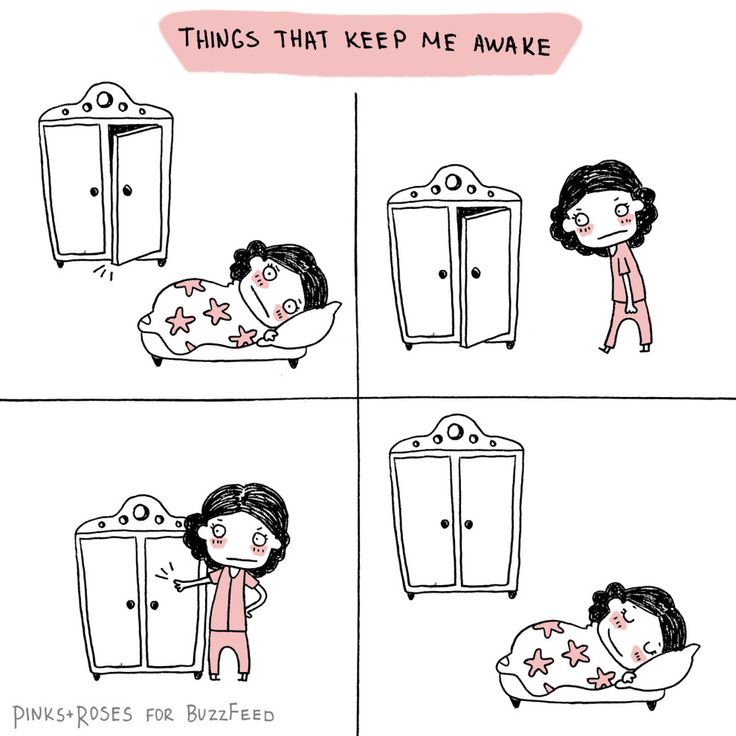 In this case, mom and dad should understand that the baby, like other people, goes from one phase of sleep to another. If at the moment the baby is sleeping deeply, then even holding him in a column or pulling on his ear or nose is useless. It is worth waiting about half an hour and trying again. Most likely, the baby, after all, will wake up.
In this case, mom and dad should understand that the baby, like other people, goes from one phase of sleep to another. If at the moment the baby is sleeping deeply, then even holding him in a column or pulling on his ear or nose is useless. It is worth waiting about half an hour and trying again. Most likely, the baby, after all, will wake up.
How to wake up a baby without scaring him? nine0003
You need to understand that a normally developing healthy child up to a year old, and sometimes more, will definitely wake up at night, and more than once, to suck mother's milk. This is absolutely natural, moreover, often children begin to eat more intensively in the early morning, almost without stopping. Such a mechanism is laid down by nature and is necessary for the crumbs for peace and proper development. The baby should be awakened only in the cases specified above so that he does not lose weight, grows healthy and full of strength. nine0003
This is absolutely natural, moreover, often children begin to eat more intensively in the early morning, almost without stopping. Such a mechanism is laid down by nature and is necessary for the crumbs for peace and proper development. The baby should be awakened only in the cases specified above so that he does not lose weight, grows healthy and full of strength. nine0003
The child is a mammal. His body has self-preservation functions. That is why he wakes up at the moment when he experiences a feeling of intense hunger. From this statement, the question arises, is it necessary to wake an infant for feeding? It is important to understand the problem with all responsibility in order to avoid serious violations in the baby's body.
Features of baby sleep
The baby can sleep long enough.
It is advisable to wake him up for feeding only in the following cases: nine0003
Quite often during childbirth, epidural anesthesia or drugs are used, among the side effects of which a long sleep in the baby is recorded. In this case, you need to independently monitor the regularity of meals. Otherwise, it is not necessary to wake the baby for feeding. His body will wake up on its own when hungry.
Children are individual, so they may have a different attitude to sleep. For a quick awakening, it is best to take the baby in your arms and hold it in an upright position. Mom is advised to carefully monitor the eyelids. He will start waking up if they start shaking a little.
If you hear sniffling, it means that at the moment the dream is in the active phase. nine0003
In deep sleep, his arms are not tense, but hang freely. In this case, the attempt should be repeated no earlier than twenty minutes later.
The baby can eat even during sleep
The need to interrupt sleep during breastfeeding
The baby is constantly with the mother. If you need to eat at night, then you do not need to fully wake up. To do this, it is enough to roll over on your side and enjoy your favorite treat. After receiving the breast, he may well continue his sleep for a long time. nine0003
A similar situation can happen several times in one night. This is very convenient, because mommy does not need to lull him again after the meal. In this case, the parents will be able to sleep well at night.
Breastfeeding takes place automatically, because the baby himself asks for another portion of the treat. Unfortunately, the process is different for some babies:
Otherwise, there is an increased risk that the baby will not get all the necessary vitamins and minerals.
If a woman does not lactate in the proper amount, then at night she will also have to wake up the baby. By regularly breastfeeding at night, it will be possible to prevent the loss of the ability to produce milk. In the body of a woman, a hormone is produced that is responsible for the intensity of milk production. Therefore, breastfeeding experts recommend breastfeeding as often as possible at night. nine0003
Feeding every three hours
Frequency of feeding
Each baby should be fed according to individual needs. Mom feels a connection with the child all the time, so she just needs to trust her own instinct. Most often, you should feed the newborn.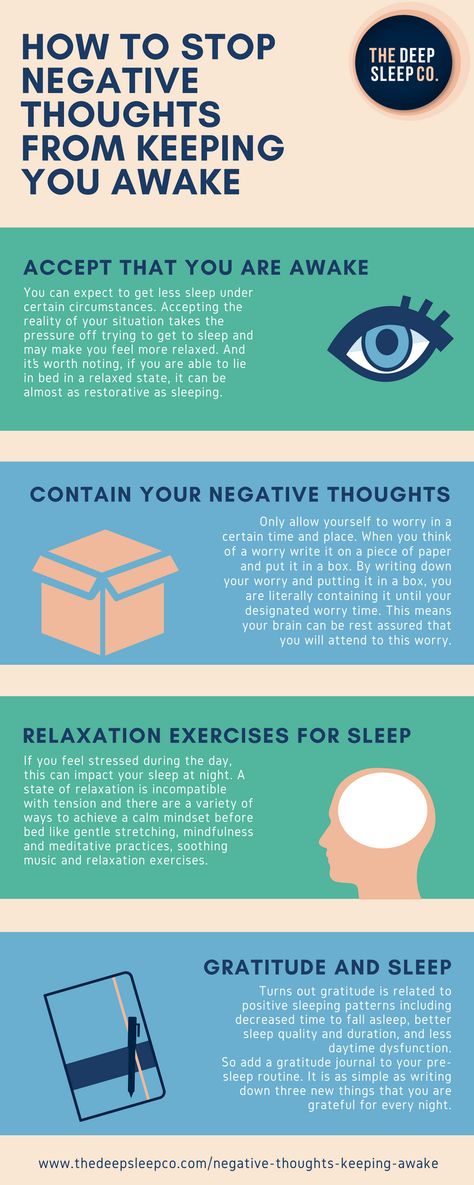 Over time, the number of approaches decreases.
Over time, the number of approaches decreases.
Feeding at night can be done less frequently if the baby is already six months old. In this case, the need for food arises in him early in the morning. The regimen is maintained for the entire lactation period. nine0003
As the baby grows older, the need to eat at night becomes less and less. The expediency in this procedure is noticeable with a strong growth spurt, the appearance of the first teeth or various diseases. After the negative factor is eliminated, the baby will return to the usual feeding regimen.
Methods of awakening
Mother's attention should be paid to how to wake up the newborn for feeding:
Sponge massage on the face will help you wake up quickly. It is important to first dip it a little in cool water. The temperature should be pleasant.
The child should be awakened gently and affectionately
Before waking up, you do not need to turn on the light. Children's eyes are incredibly sensitive, so such manipulation can greatly annoy them. In the presence of an abundance of light, the baby, on the contrary, will tend to keep the eyelids closed. In this case, the instinct of self-preservation works in his body. If the light is weak, then the child, on the contrary, will want to open his eyes faster. nine0003
If the mother wakes up the baby and starts feeding him, it is important that he does not fall asleep again. To do this, you can change the position or make massage movements on the cheek or spine. Manipulation will have to be done more than once.


